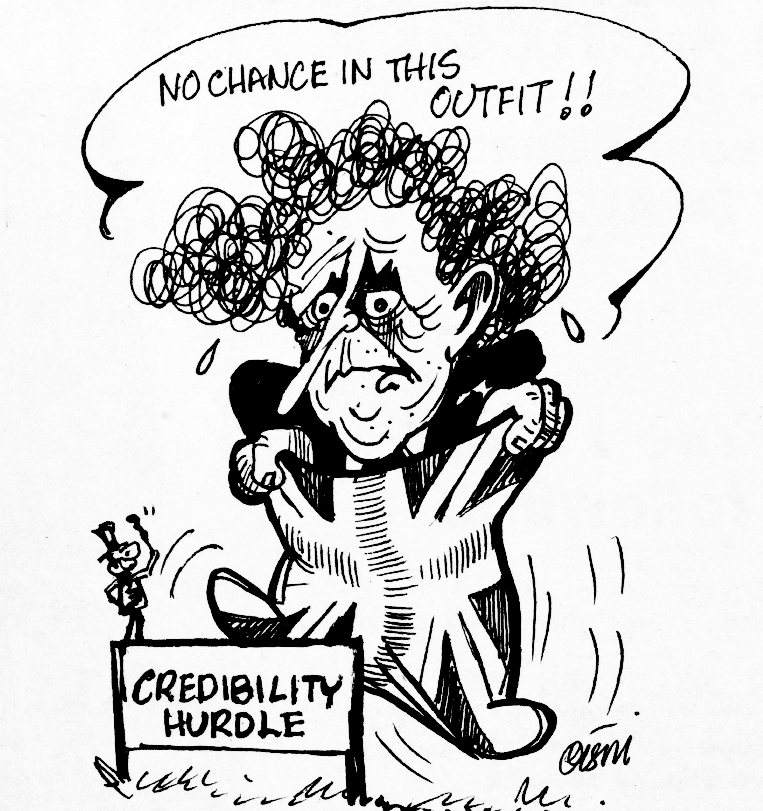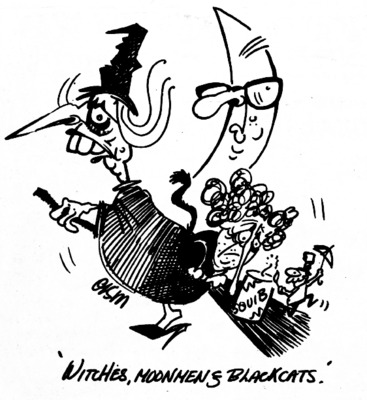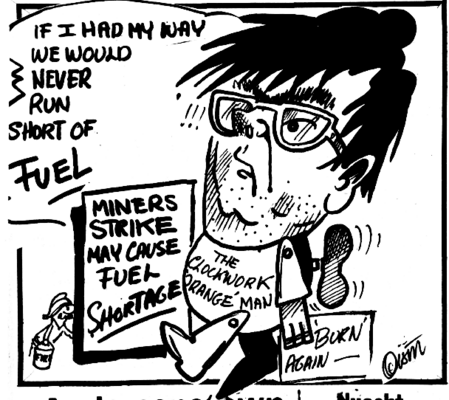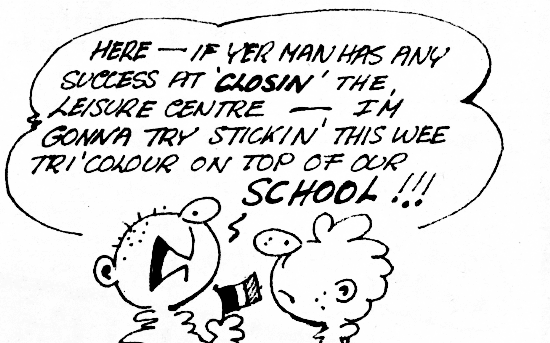We look at the stories that were making the headlines this week in 1984
DUP ‘exposé’ on A’town News Brighton bomb warning falls flat
AN outrageous claim by Ian Paisley’s Democratic Unionist Party, that a press statement from a small English troops out group, published in the Andersonstown News, gave prior warning of the Brighton bombing, resulted in a flood of phone calls to the Andersonstown News from press, radio and television reporters from all over Ireland and Britain.
Journalists were dismayed to find, however, that far from being a prediction of the Brighton attack, the article in our 6th October edition, simply referred to a fringe meeting at the Tory Conference which was to be picketed by the Irish Freedom Movement. DUP heckles had been raised, apparently, by a line in the IFM press release which announced the groups’ intention of “rocking the Tory Party Conference with a large, loud protest”.
It added: “Inside the Conference sections of the Tory faithful will be trying to whip up anti-Irish hysteria with motions supporting British terror in Ireland.
“Outside the Conference, the Irish Freedom movement will be out to create an anti-British state atmosphere with a large, loud protest against the Prevention of Terrorism Act and in support of Irish Republican prisoners’ right to repatriation.”
True to their word, the IFM held a picket outside the Tory Conference on Wednesday 10th October, and disrupted a fringe meeting addressed by Unionist leader James Molyneaux.
Some informer victims to be freed
LOYALIST prisoners convicted on the evidence of the alleged UVF informer Joseph Bennett will be released on appeal.
That’s the startling opinion of Derry republicans presently on trial on the word of Raymond Gilmore at Belfast Crown Court, and a growing number of solicitors.
However, a legal source in Belfast told the Andersonstown News, that the appeal decision in the loyalist case would be carefully worded so that it does not set a precedent for other appeals.
“The Bennett Appeal was heard before three judges and their decision is expected soon – possibly before one month,” the solicitor said.
“It now appears very likely that all 14 men convicted on Bennett’s word will be released on the basis that the trial judge, in reaching his decision to convict, took the wrong factors into consideration.”
The judge’s decision would, however, fall far short of a ruling that uncorroborated ‘informer’ evidence is sufficient to convict.
The men would thus be freed on a technicality and the Appeal Judge’s decision would have no bearing on other appeals – in particular the Black appeal which is to begin before Christmas. Bennet was arrested in May 1982 after the Killinchy Post Office murder. In return for immunity for his part in the murder, he agreed to become a ‘supergrass’.
At the Crown Court on Monday 15th October, one of the accused in the Gilmour trial, Eamon Doherty, called on Lord Justice Lowry to adjourn the hearing until after the Appeal Court decision in the Joe Bennett case was announced. Doherty said sources close to the 14 loyalists involved in last month’s appeal, reported that the men had been told they are to be released and have been told the reasons behind the decision.
Doherty went on to accuse Lord Lowry and other judges of accepting informer evidence only in cases involving nationalists.
Nancy Murray, secretary of the Co Antrim Camogie Board, receives leather inlaid plaques from Angela Dobbin and Sharon Bradley of Anpro Limited. The plaques were presented at the Annual Camogie Dinner to George O’Hara and Tommy and Hugh Magee for their work. Also pictured is Employment Executive Jackie D’Arcy.
Editorial: The Brighton Bombing
PEOPLE who long for a non-violent solution to the British problem, are put at some disadvantage by the Brighton bomb. How do those of us who are non-violent yet believe that Britain's continued occupation of the Six Counties is immoral, compete with this armed blow against the instigators of so much pain and suffering in our country.
The IRA have always believed that the armed occupation of our country, by almost 20,000 police and British army personnel, against the democratic wishes of the Irish people, should be opposed by arms. The cold logic of that case is hard to refute by anyone who believes in the use of armed force to solve problems, and that includes Mrs Thatcher and the British Government.
Not only do they believe in violence to solve problems, but they openly use it to stifle the democratic right of the Irish people to self-determination. And, we have no doubt, given the opportunity, that they would perpetrate violence on a "Belgrano" scale if they thought this would succeed.
For Mrs Thatcher and the British Government to talk about democracy, violence and terrorism is not only a misuse of the English language, but is an affront to the intelligence of all the people both here and in Britain.
The Brighton Bomb was not a blow at democracy, despite what Mrs Thatcher and the media says, but rather a blow at the lack of it. And it is incumbent on all of us who long for an end to bombs and bullets, whether they be British or Irish, to state this is a clear and unequivocal matter, even at the risk of being accused of giving succour to "men of violence "







